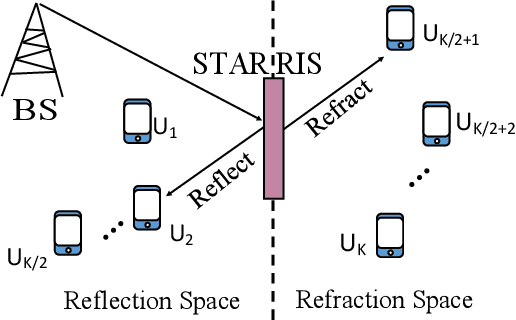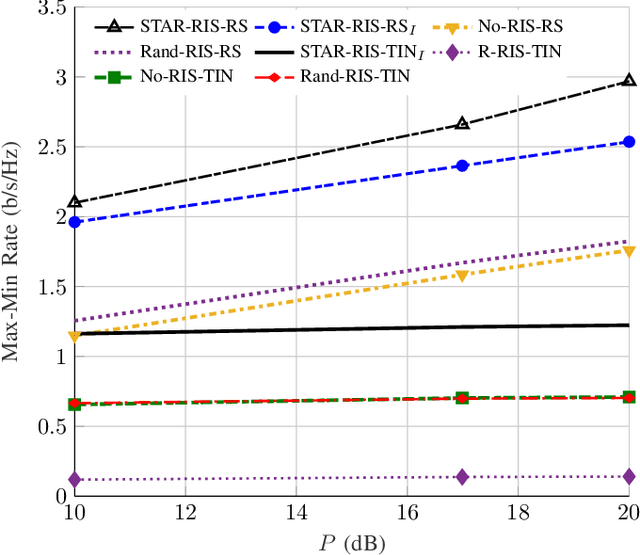URLLC Networks enabled by STAR-RIS, Rate Splitting, and Multiple Antennas
Paper and Code
Nov 07, 2024

The challenges in dense ultra-reliable low-latency communication networks to deliver the required service to multiple devices are addressed by three main technologies: multiple antennas at the base station (MISO), rate splitting multiple access (RSMA) with private and common message encoding, and simultaneously transmitting and reflecting reconfigurable intelligent surfaces (STAR-RIS). Careful resource allocation, encompassing beamforming and RIS optimization, is required to exploit the synergy between the three. We propose an alternating optimization-based algorithm, relying on minorization-maximization. Numerical results show that the achievable second-order max-min rates of the proposed scheme outperform the baselines significantly. MISO, RSMA, and STAR-RIS all contribute to enabling ultra-reliable low-latency communication (URLLC).
 Add to Chrome
Add to Chrome Add to Firefox
Add to Firefox Add to Edge
Add to Edge